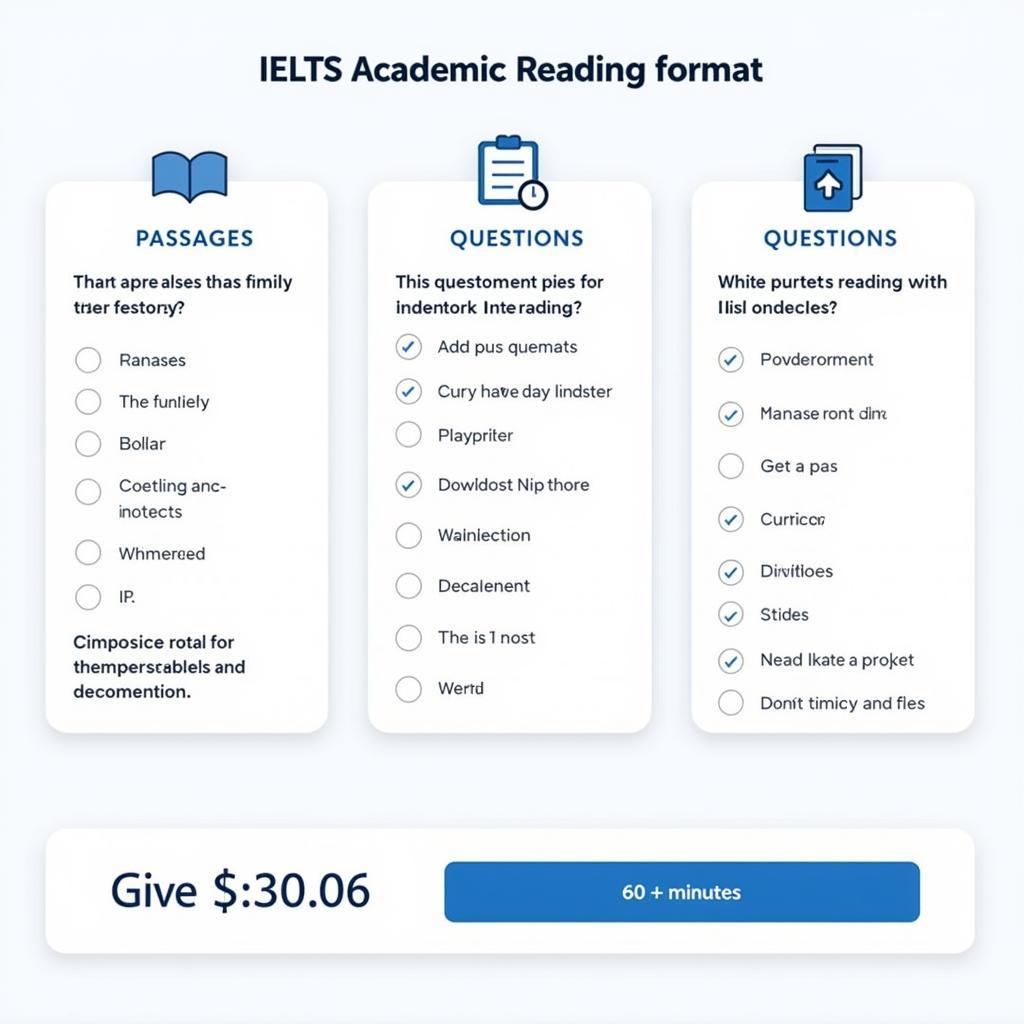The IELTS Academic Reading module presents unique challenges that require specific strategies and techniques to master. Whether you’re aiming for a band score of 7.0 or higher, understanding these essential tips can significantly improve your performance and help you tackle the test with confidence.
Understanding the IELTS Academic Reading Format
The Academic Reading test consists of three passages with increasing difficulty levels and 40 questions to complete in 60 minutes. Before diving into specific strategies, it’s crucial to understand the test format and what examiners expect from candidates.
To ensure you’re well-prepared, you might want to explore more about identifying the writer’s purpose in reading as it forms a fundamental aspect of comprehension.

Time Management Strategies
- 20-20-20 Rule: Allocate 20 minutes for each passage
- Question Preview: Spend 2-3 minutes scanning questions before reading
- Strategic Reading: Use selective reading techniques based on question types
- Answer Transfer: Reserve 5 minutes at the end for transferring answers
How to identify the writer’s tone can help you better understand passages and answer questions more accurately.
Essential Reading Techniques
Skimming and Scanning
- Skimming: Read quickly for main ideas
- Topic Sentences: Focus on first and last sentences of paragraphs
- Key Information: Look for dates, numbers, and proper nouns
- Structural Markers: Pay attention to headings and subheadings
For more detailed guidance, check out these strategies to boost IELTS reading score.
Question Type-Specific Approaches
Different question types require different strategies. Understanding these can significantly improve your performance:
-
Multiple Choice:
- Eliminate obviously wrong answers
- Look for synonym matches
- Be wary of distractors
-
True/False/Not Given:
- Focus on factual information
- Don’t make assumptions
- Look for exact matches
-
Matching Headings:
- Identify paragraph themes
- Look for repeated ideas
- Match synonyms carefully
Vocabulary Enhancement Tips
Developing your academic vocabulary is crucial. Here are effective strategies:
- Create topic-specific word lists
- Study common academic word families
- Practice identifying contextual meanings
- Learn common synonyms and paraphrases
What are the IELTS reading test tips? provides additional insights into vocabulary development.
Practice Techniques
Regular practice is essential for improvement. Consider these approaches:
-
Timed Practice:
- Complete full practice tests under exam conditions
- Practice individual passages with strict timing
- Record and analyze your timing patterns
-
Analysis and Review:
- Review incorrect answers thoroughly
- Identify pattern mistakes
- Create personal error logs
For specific practice strategies, explore What are the IELTS reading practice tips?.
Common Pitfalls to Avoid
- Don’t spend too long on difficult questions
- Avoid translating every word
- Don’t ignore instructions
- Never leave questions unanswered
- Don’t rely on background knowledge
Expert Tips from Dr. Sarah Mitchell, IELTS Examiner
“The key to IELTS Academic Reading success lies in strategic time management and targeted practice. Focus on understanding question types rather than memorizing content.”
Conclusion
Success in IELTS Academic Reading requires a combination of strategic approach, consistent practice, and effective time management. By implementing these tips and regularly reviewing your performance, you can significantly improve your reading score and achieve your desired band.
Frequently Asked Questions
- How many hours should I practice reading daily?
- What’s the best way to improve reading speed?
- Should I read the questions or passage first?
- How can I improve my vocabulary for IELTS reading?
- What’s the most challenging question type in IELTS reading?